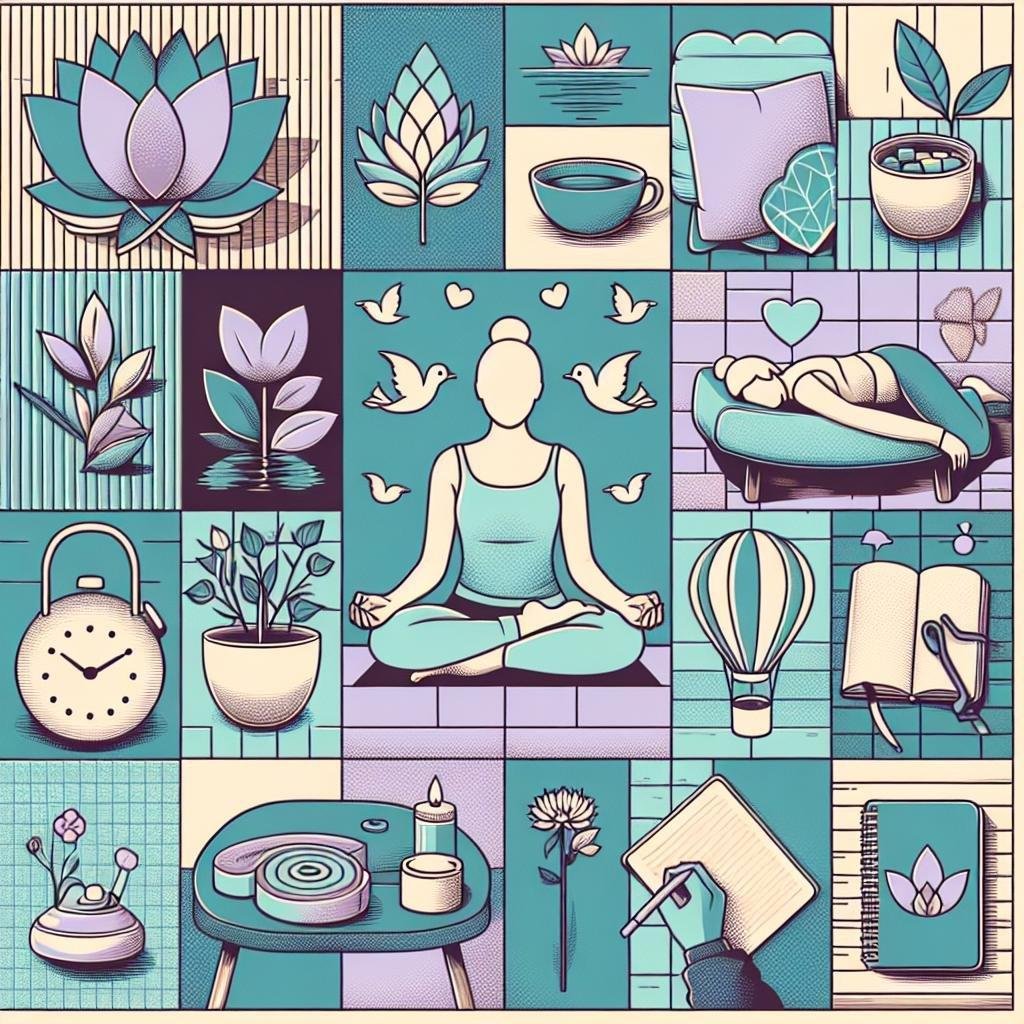In today’s fast-paced world, prioritizing mental health has never been more crucial. The stresses of daily life can be overwhelming, making it essential to carve out time for self-care. But what does effective mental health self-care really look like? It involves more than just occasional breaks or fleeting moments of relaxation; it requires a well-thought-out routine that nurtures your mental well-being consistently. In this comprehensive guide, we will explore the essential components of a mental health self-care routine, offering practical strategies and insights to help you create a personalized plan that fits your needs. Whether you’re looking to reduce anxiety, enhance your mood, or cultivate resilience, this guide will empower you to take actionable steps towards a healthier, more balanced mind. Let’s embark on this journey towards mental wellness together, making self-care a cornerstone of your everyday life.
Table of Contents
- Understanding the Importance of Mental Health Self-Care
- Identifying Your Unique Needs and Goals
- Crafting a Personalized Self-Care Routine
- Integrating Mindfulness and Reflection for Lasting Change
- Concluding Remarks
Understanding the Importance of Mental Health Self-Care
When it comes to maintaining overall wellness, mental health self-care plays a pivotal role. It is not merely about alleviating stress or anxiety but is about proactively nurturing our mental well-being. Regular self-care practices can enhance emotional resilience, improve mood, and even contribute to physical health. Incorporating self-care into daily life helps build a strong foundation for navigating life’s challenges, allowing individuals to respond to stressors with a calmer mindset. For many, this journey might involve exploring various activities and finding the right balance that resonates personally.
Establishing a dedicated self-care routine includes identifying activities that promote relaxation, joy, and mindfulness. Here are some essential elements to consider while developing your own routine:
- Mindful Meditation: Engage in daily mindfulness or meditation practices to center your thoughts.
- Physical Activity: Include activities that you enjoy, such as walking, yoga, or dancing, to boost endorphins.
- Social Connections: Make time for friends and family; nurturing relationships is vital for emotional health.
- Journaling: Reflecting on your thoughts and feelings can help process emotions and clarify your mind.
- Creative Outlets: Explore hobbies like painting, writing, or playing music to express yourself.
Identifying Your Unique Needs and Goals
Understanding your individual circumstances is crucial when crafting a mental health self-care routine. Everyone’s life experiences are unique, and what works for one person might not resonate with another. To pinpoint your specific needs, consider reflecting on a few key areas of your life:
- Current Stressors: Identify sources of stress—work pressures, relationship dynamics, or even personal expectations.
- Emotional Patterns: Acknowledge your feelings. Do you often feel anxious, depressed, or overwhelmed?
- Past Coping Mechanisms: Think about strategies that have helped you in the past. Were there particular activities that provided relief or joy?
Setting clear, achievable goals is equally important in shaping your self-care strategy. Not only do these goals guide your actions, but they also provide benchmarks for evaluating progress. Consider establishing a mix of short-term and long-term objectives:
| Goal Type | Example Goals |
|---|---|
| Short-term | Practice meditation for 5 minutes daily |
| Long-term | Attend monthly therapy sessions |
Crafting a Personalized Self-Care Routine
Creating a self-care routine that resonates with your personal needs is essential for nurturing mental health. Start by reflecting on what aspects of your life uplift or drain you. Consider activities that bring you joy, relaxation, and fulfillment. Here are some suggestions to help you get started:
- Mindfulness Practices: Incorporate meditation, deep-breathing exercises, or yoga into your routine.
- Physical Activity: Engage in regular exercise, be it a brisk walk, cycling, or dance.
- Creative Outlets: Explore painting, writing, or crafting to express your emotions.
- Social Connections: Dedicate time to friends or family who provide support and positivity.
Your self-care routine should be flexible and evolve with your needs. To ensure balance, consider mapping out a weekly self-care schedule. Use the table below as a simple framework to help visualize your activities:
| Day | Morning Activity | Evening Activity |
|---|---|---|
| Monday | Meditation (10 mins) | Read a book |
| Tuesday | Walk in nature | Journaling (15 mins) |
| Wednesday | Yoga (30 mins) | Connect with a friend |
| Thursday | Creative writing (20 mins) | Watch a feel-good movie |
| Friday | Exercise (Gym or home workout) | Cook a new recipe |
| Saturday | Sleep in or leisurely breakfast | Family game night |
| Sunday | Plan for the week ahead | Relax with a bath |
Integrating Mindfulness and Reflection for Lasting Change
Integrating mindfulness into your daily routine can profoundly shift your approach to self-care. By practicing mindfulness—focusing fully on the present moment without judgment—you create a mental space that allows for greater awareness of your thoughts and feelings. This heightened awareness encourages you to engage in positive self-talk and recognize triggers that may lead to stress or anxiety. Here are some effective mindfulness techniques to incorporate:
- Breath Awareness: Spend a few minutes each day focusing on your breath to center yourself.
- Body Scan: Tuning into your body sensations helps identify areas of tension and promote relaxation.
- Gratitude Journaling: Reflecting on what you are thankful for fosters a positive mindset.
Reflection complements mindfulness by allowing you to evaluate experiences and reactions, fostering deeper insights into your mental health journey. Allocating time for reflection provides an opportunity to analyze both your progress and setbacks, creating a personalized roadmap for future growth. Structured reflection can be facilitated through:
- Weekly Check-Ins: Set aside time each week to assess your mental well-being and self-care strategies.
- Journaling Prompts: Use guided questions to explore your emotions, challenges, and victories.
- Mindful Meditation Sessions: Dedicate time to reflect on your thoughts and feelings in a quiet space.
Concluding Remarks
As we come to the close of this comprehensive guide on creating a mental health self-care routine, it’s crucial to remember that self-care is not a one-size-fits-all approach. Each individual’s journey is unique, influenced by personal experiences, circumstances, and emotional needs. The strategies and techniques outlined here are intended to serve as a foundation upon which you can build a routine that resonates with you.
Prioritizing mental health is not a luxury; it is a necessity. By consciously incorporating self-care practices into your daily life, you pave the way for resilience, emotional stability, and overall well-being. Remember that it’s okay to seek help along the way. Whether it’s professional guidance or support from loved ones, you don’t have to navigate this journey alone.
Take the time to experiment with different activities and create a routine that feels nourishing. Embrace the process, and be gentle with yourself as you prioritize your mental health. As you commit to this self-care journey, you not only cultivate a deeper connection with yourself but also contribute to a healthier, more compassionate world.
Thank you for joining us on this exploration into mental health self-care. May you find strength in the journey ahead and discover the transformative power of caring for your mind as you do for your body. Remember, you are worthy of the care you give to others. Take that first step today, and let the journey toward a healthier mind begin.




